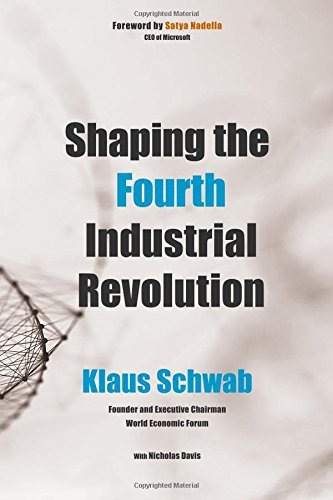In our rapidly evolving world, technological advancements are reshaping our lives. The Fourth Industrial Revolution, with its transformative changes, is upon us. Klaus Schwab, the founder and executive chairman of the World Economic Forum, is a leading voice in exploring this phenomenon. His seminal work, "Shaping The Fourth Industrial Revolution," Provides invaluable insights. In this blog post, we delve into Schwab's work and examine how individuals, businesses, and governments can navigate this era of profound change.
At the heart of Schwab's thesis lies the idea that the Fourth Industrial Revolution is not just about technological breakthroughs but also their integration into every aspect of society. Unlike previous revolutions, which primarily impacted industrial production, this revolution is characterized by the fusion of digital, biological, and physical technologies, blurring the lines between the physical, digital, and biological spheres.
One of the key messages of Schwab's book is the need for proactive engagement and collaboration in shaping the trajectory of this revolution. He underscores the importance of stakeholders from all sectors coming together to co-create frameworks and policies. This ensures the benefits of technological progress are widely shared and the risks mitigated. It's a call for a new approach to governance that is agile, inclusive, and forward-thinking.
Schwab also highlights the imperative for individuals to adapt to the changing landscape by continuously updating their skills and embracing lifelong learning. As automation and artificial intelligence reshape the job market, traditional roles and new ones are evolving. To thrive in this dynamic environment, individuals must cultivate a mindset of adaptability and resilience, seeking opportunities for upskilling and retraining.
"Shaping The Fourth Industrial Revolution" by Klaus Schwab also underscores the importance of ethical considerations in the development and deployment of technology. As innovations such as AI raise complex ethical dilemmas, it becomes essential for organizations to prioritize values such as transparency, accountability, and inclusivity. By embedding ethical principles into the design and implementation of technology, we can ensure that it serves the collective good and contributes to a more sustainable and equitable future.
For businesses, Schwab's insights serve as a call to embrace digital transformation and innovation—those who fail to adapt risk becoming obsolete in an increasingly competitive landscape. However, the rewards for those who embrace change can be significant, from increased efficiency and productivity to creating entirely new markets and business models. By harnessing the power of emerging technologies, businesses can unlock new opportunities for growth and value creation.
From a governmental standpoint, Schwab argues for reimagining regulatory frameworks to keep pace with technological advancements while safeguarding society's interests. This requires a collaborative approach between policymakers, industry leaders, and civil society to develop policies that foster innovation while addressing concerns around privacy, security, and employment.
In conclusion, "Shaping The Fourth Industrial Revolution" by Klaus Schwab serves as a roadmap for navigating the complexities of our rapidly changing world. By embracing innovation, fostering collaboration, and upholding ethical principles, we can harness technology's transformative potential to create a more prosperous, inclusive, and sustainable future for all. As we stand on the brink of a new era of unprecedented possibilities, let us seize the opportunity to shape the Fourth Industrial Revolution for the benefit of humanity.

